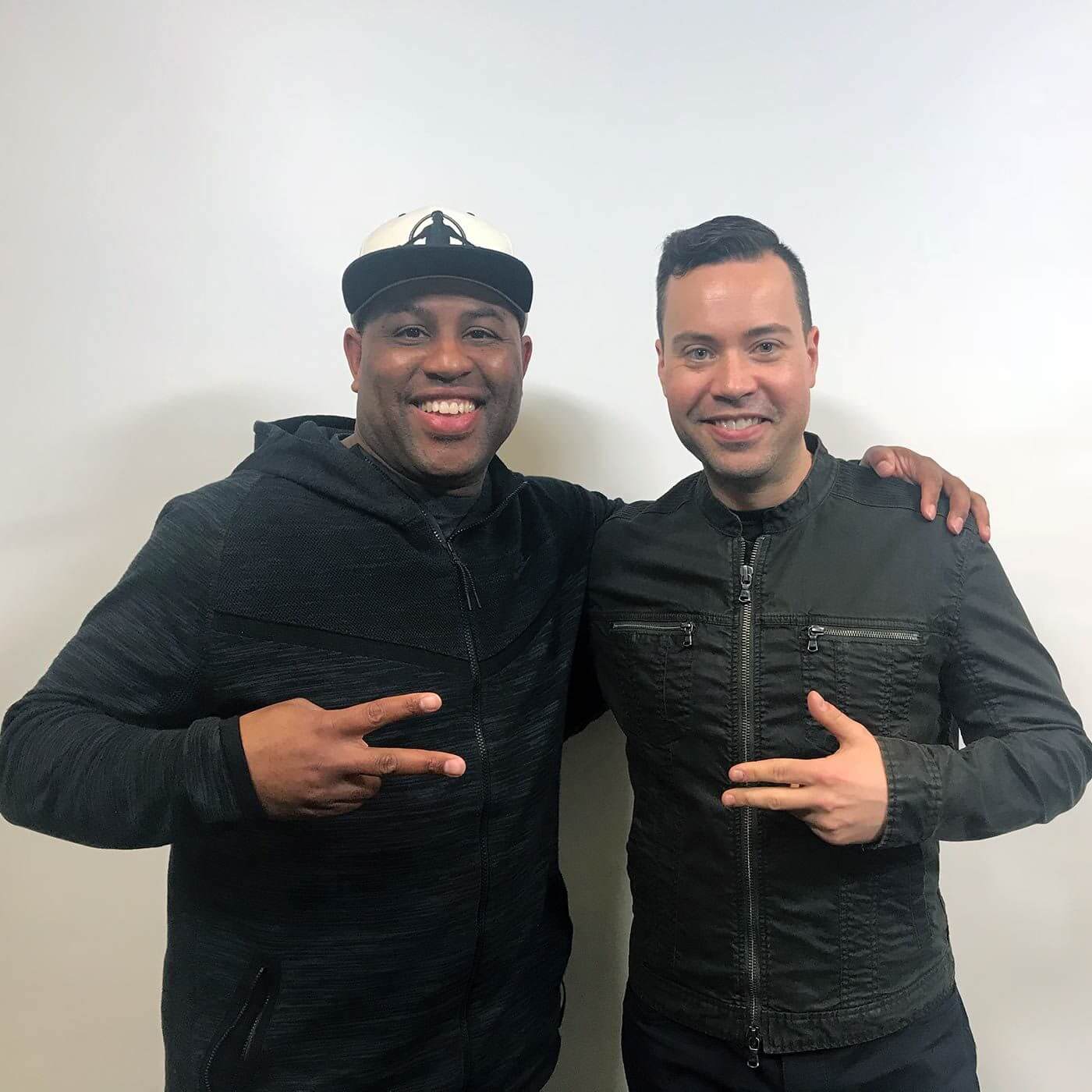Eric Thomas (@ericthomasbtc) is a motivational speaker, YouTube personality, podcaster, pastor, director of Breathe University, and author of several books, including The Secret to Success: When You Want to Succeed as Bad as You Want to Breathe.
“Don’t allow the options in your community to be the only options you explore.” -Eric Thomas
The Cheat Sheet:
- How Eric Thomas went from homeless to PhD to become one of the world’s top motivational speakers.
- How and why to get out of our psychological bubbles whether we’re broke or millionaires.
- Why we do not have to accept life as it was given to us.
- How to break out of patterns and mindsets that no longer serve us.
- What taking responsibility for our own actions ultimately gives us (and what blaming others takes away).
- And so much more…
[aoc-subscribe]
Download Episode Worksheet Here
Known as The Hip Hop Preacher, Eric Thomas joins us for episode 691 to explain how people who grow up under limited circumstances can expand their horizons and break free of the bubbles that confine them, why taking responsibility for our own actions is empowering, how he’s stealing hip hop back, the edge the disadvantaged have over people who only know what winning is like, and lots more. Listen, learn, and enjoy!
More About This Show
Having grown up between Chicago and Detroit, Eric Thomas — aka The Hip Hop Preacher — knows how the Midwestern mindset differs from those of the East and West Coasts.
In Detroit especially, kids grow up believing their futures lie in working for the auto industry because Ford, GM, and Chrysler have formed a pervasive bubble around the town over the past century. It’s not unknown for generations of a family to work for these companies almost from the cradle to the grave — whether or not they actually find the work any more appealing than just having a steady paycheck.
Thinking Outside the Bubble
Different industries create different bubbles in other cities, but the effects are the same: they promulgate the impression to children growing up under such conditions that their options are limited by their environment.
But Eric wants to reiterate that everyone has a choice to break out of whatever bubble surrounds them — they just need to know it exists as a possibility. “I’m grateful to be on the podcast today,” he says. “I’m grateful to have the opportunity to show kids that…it doesn’t require a lot to get to the other side.
“I tell kids: get your passport; get out of your space and see another part of the world and you’ll be shocked. When you see another human do it, it’ll click.”
Eric himself broke out of his own bubble as a young man to become one of the most sought-after motivational speakers in the world (Lebron James has credited Eric as part of his inspiration for winning the 2012 NBA Championship), though the journey was far from easy.
After several arguments with his family, Eric dropped out of high school and left home. He was homeless for a time, living on the streets, when he was approached by a minister who convinced him to continue his education.
And even though Eric doesn’t believe college is essential for everyone who wants to create a better situation for themselves, he says the path to earning a PhD in education administration nurtured his critical thinking beyond what was possible when he simply had a GED.
But he credits travel — getting out of the Midwest and seeing what life was like outside the bubbles he knew growing up — as the big first step in his development.
Glory and Consequences
When Eric left home in anger, he realized immediately he would have to face the consequences of his actions — it forced him to consider what was next. It was scary, but also liberating.
“The reason why I take responsibility is because I own the power,” says Eric. “I choose if this thing changes or if it stays the same. I choose if it gets better or it gets worse…if I work hard, I want credit for it. If I make a mistake, I want to take full responsibility for it.
“Once you [blame others], you give away power. You give away how much money you can make. How much happiness you can have. I don’t want to do that. I want to own my rights and get all the rewards.”
A Knack for Teaching
Eric confesses he was never much into school — which seems strange coming from someone who earned his PhD in education.
“Do what works, not what you want to work,” Eric says. “I got up on the microphone and I spoke, and guess what happened when I spoke on the mic? People who hate…motivational speeches, they would just be like, ‘Yo, can you keep going?’ When I would go in the classroom, I would shut the classroom down! It was the only thing I was good at.”
Taking Hip Hop Back
When asked why he leans into hip hop as a brand when it’s seen by many as a subculture that glorifies misogyny, materialism, violence, and other negative effects, Eric reminds us that hip hop only adopted these facets later on. It originated with a more positive perspective — making good from bad situations rather than reveling in them.
“Some of these artists give hip hop a bad name,” says Eric. “I’m taking it back! I’m taking it hostage. And I do believe that pure hip hop is consistent with the positive stuff that I talk about.”
He’d rather be the example of what life can provide when good choices are made than a one-hit wonder of short-term thinking.
Eric says: “I’m just providing a viable option to kids all over the world and saying, ‘You have choices, and if I were you, I would choose the path that’s going to take you to sustained success.”
Inspiring the Disadvantaged
Breaking out of bubbles and maintaining a positive attitude sounds great for most of us lucky enough to have a leg up on life’s essentials. But how does Eric appeal to people who are significantly disadvantaged and let them know their dreams are viable too?
“I think that most people who don’t think about what they can become, they’re on cruise control,” Eric says. “I was on cruise control. My grandfather dropped out. My father dropped out. I dropped out. I was on cruise control. Then one day I said to myself, ‘Oh, losing doesn’t feel good. I want to win.’ So I think those individuals who don’t do well, it’s not that they can’t do well, it’s that they never reflect. They never think. They’re just like, ‘Yo, this is the life that was given to me.'”
Eric also points out that being able to overcome adversity and unlock this attitude of cruise control gives the disadvantaged more leverage than someone who’s used to winning all the time.
“I hit rock bottom at 16,” says Eric, “so everything has been up for me.”
THANKS, ERIC THOMAS!
If you enjoyed this session with Eric Thomas, let him know by clicking on the link below and sending him a quick shout out at Twitter:
Click here to thank Eric Thomas at Twitter!
Resources from This Episode:
- The Secret to Success: When You Want to Succeed as Bad as You Want to Breathe by Eric Thomas
- Other books by Eric Thomas
- Eric Thomas’ website
- The Secret to Success Podcast
- Breathe University
- Eric Thomas at Facebook
- Eric Thomas at YouTube
- Eric Thomas at Twitter
- U.N.I.T.Y. by Queen Latifah
You’ll Also Like:
- The Art of Charm Challenge (click here or text AOC to 38470 in the US)
- The Art of Charm Bootcamps
- Elite Human Dynamics
- Best of The Art of Charm Podcast
- The Art of Charm Toolbox
- The Art of Charm Toolbox for Women
- Find out more about the team who makes The Art of Charm podcast here!
- Follow The Art of Charm on social media: Instagram | Twitter | Facebook
On your phone? Click here to write us a well-deserved iTunes review and help us outrank the riffraff!




